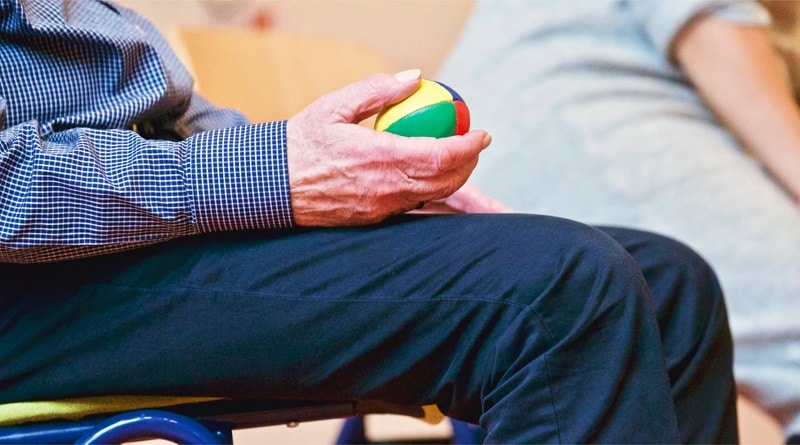Are you patient, empathetic, kind and eager to help improve the lives of others? If you have a desire to work alongside those with disabilities in order to help improve their quality of life, Occupational Therapy might be the career you’re looking for.
What is Occupational Therapy?
Occupational Therapy is a healthcare profession that provides support, treatment and therapy to those with physical, psychological or social problems. It involves assessment and intervention in order to aid in peoples’ development and recovery through activity and guidance.
What 3rd level courses are available?
Universities and colleges in Ireland are offering courses in the following subject areas:
- Occupational Therapy – NUI Galway, UCC and TCD
- Health Science with Occupational Therapy Studies – LYIT
- Occupational Therapy Assistant (PLC) – O’Fiaich Institute, Bray Institute of Further Technology, Colaiste Dhulaigh College of Further Education
- Occupational Therapy Studies (PLC) – Cavan Institute, Dunboyne College of Further Education
Studying occupational therapy in college
There are both PLC courses and undergraduate courses available in this area. PLC courses will generally be one year long while undergraduate courses are four years long. All courses will give students the opportunity to gain skills and knowledge in the area of occupational therapy to allow them to pursue their careers.
The first year of an undergraduate course will usually act as a foundation year and provide you with an overview of what is to come throughout your degree. You will cover the basics of occupational therapy and gain a strong foundation in the area. Modules that are covered in your first year include principles for practice/fundamentals, psychology, human body structure, human body function, mental health, enabling occupation- physical disability and group work and professional skills. Depending on the course structure, you will carry out one week of placement observation to end the first year, such as the course in NUI Galway.
Your second year will see you do your first practice placement as well as covering areas from neuroanatomy, neurophysiology and health psychology to enabling occupation – paediatrics, enabling occupation – intellectual disability, social policy, occupational science and communications for practice.
Third year of your course will include your second practice placement. You will have more in-depth and complex material. Modules may include cognitive neuropsychology, evidence based practice, enabling occupation – community practice, standardised testing and more.
Finally, your fourth year is quite work placement dominant as well as working on case studies. Different courses will differ in their structures and may have work placements at different times. This information is based on the Occupational Therapy course offered by NUI Galway.
Another option is to study Occupational THerapy in the UK, therefore you will apply through the English version of the CAO known as UCAS. More information about UCAS can be found in the ‘Resources’ section below.
Career Options
The main career option is to work as an Occupational Therapist. Employment can be found in hospitals, clinics, rehabilitation centres or you can even set up your own business and practice.
Many might continue on their studies at postgraduate level to specialise in a particular field or go into the area of research, teaching or lecturing in universities or colleges after gaining some experience in the role.
Skills that are very important to have as an Occupational Therapist include excellent communication skills, patience, empathy, understanding, stamina, attention to detail, an analytical mind, determination, enthusiasm, trustworthy, kind, ability to work well with others, caring and a problem solver.
Related Jobs
- Occupational Therapist
- Physiotherapist
- Psychotherapist
- Intellectual Disability Nursing
- Care assistant
- Medical Assistant
- General Nurse
- Sports Therapist
Further Study
Visit postgrad.ie for more information.
FAQ
Different courses and different colleges will have different entry requirements. It’s always safest to check with the individual higher education institution which is available on their websites. As a general rule Leaving Cert students should have a minimum of six subjects which should include: Two H5 (Higher Level) grades and Four O6 (Ordinary Level) grades or four H7 (Higher Level) grades. Subjects must include Mathematics, Irish or another language, and English.
Certain QQI Awards in a relevant area are also accepted. These change from course to course so be sure to research further.
THe highest points required to study Occupational Therapy in 2020 was 555 points to study in both NUI Galway and UCC. The lowest points required were in LYIT at 408 points to study Health Science with Occupational Therapy Studies while TCD stood at 533 points for Occupational Therapy.
Where can I study?
You can explore your options here.
Did you know?
- In Census 2016, around 66,611 people presented as having intellectual disabilities in Ireland.
- From 2011-2016 there was a 15.4% increase in people presenting with intellectual disabilities in Ireland.
- A minimum of 1,000 hours of practice is required to become a qualified OT in Ireland
Resources












Comments